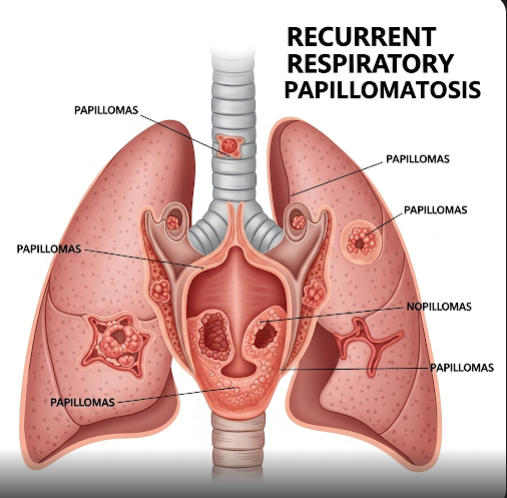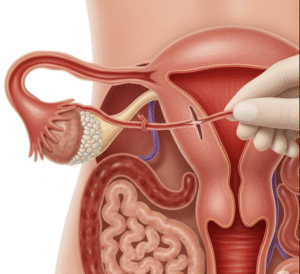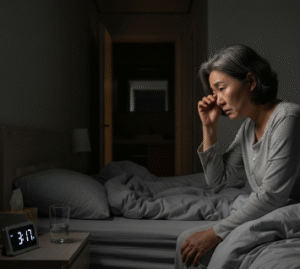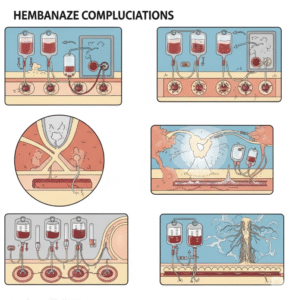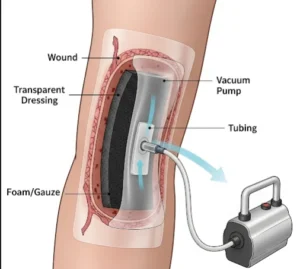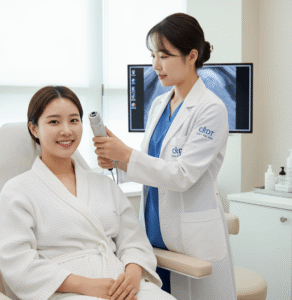Overview
Recurrent Respiratory Papillomatosis (RRP) is a rare but chronic disease characterized by the growth of benign tumors (papillomas) in the respiratory tract, primarily the larynx. These growths can cause voice changes, airway obstruction, and breathing difficulties. In Korea, otolaryngologists provide advanced diagnostic tools and treatment options to manage RRP effectively and improve patient outcomes.
What is Recurrent Respiratory Papillomatosis?
RRP is caused by infection with human papillomavirus (HPV), mainly types 6 and 11. The virus induces the formation of wart-like growths in the airway mucosa, which can recur frequently despite treatment. The disease has juvenile and adult forms, with variable severity.
Symptoms
- Hoarseness or changes in voice quality
- Chronic cough
- Stridor (high-pitched breathing sounds)
- Difficulty breathing or airway obstruction in severe cases
- Frequent respiratory infections
Causes
- Infection with HPV types 6 and 11
- Vertical transmission from mother to child during birth (juvenile form)
- Sexual transmission or reactivation of latent infection (adult form)
Risk Factors
- Maternal HPV infection during pregnancy
- Early age of onset (juvenile RRP)
- Immune system status
- Smoking and environmental irritants
Complications
- Airway obstruction requiring emergency intervention
- Recurrent surgeries leading to scarring and vocal cord damage
- Malignant transformation (rare)
- Impact on speech and breathing quality
Prevention
- HPV vaccination, especially in children and adolescents
- Safe delivery practices to reduce vertical transmission
- Avoidance of smoking and airway irritants
Treatment Options in Korea
Diagnosis
Diagnosis involves laryngoscopy, biopsy, and HPV testing to confirm the presence of papillomas and HPV type.
Medical Treatments
- Surgical removal of papillomas via microlaryngoscopy or laser surgery
- Adjuvant therapies such as antiviral medications or immune modulators in recurrent cases
- Voice therapy and respiratory support
Surgical or Advanced Therapies
- Repeated endoscopic surgeries to maintain airway patency
- Novel treatments including cidofovir injections or HPV vaccines under study
Rehabilitation and Support
- Voice rehabilitation therapy
- Psychological support for coping with chronic illness
- Regular follow-up to monitor recurrence and airway status

